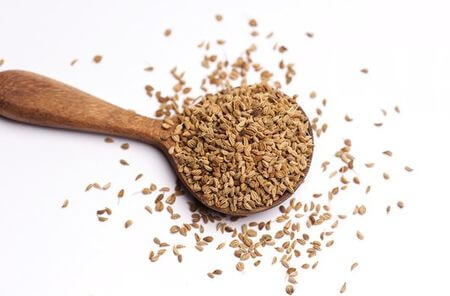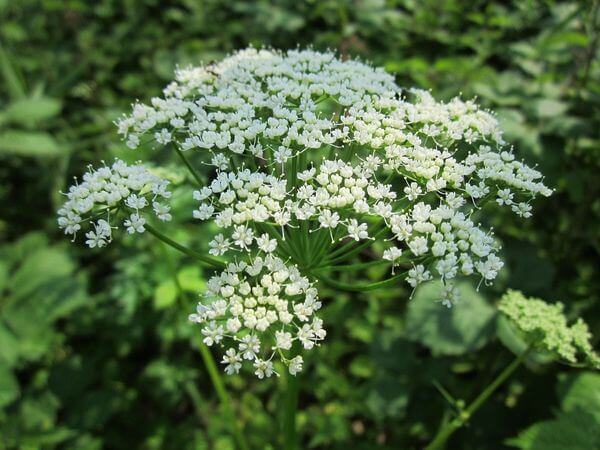Cultivated Ajwain

Ajwain (carum copticum, ajvain, ajovan, ajowan), also called bishops weed, is a herb that is used as a spice and a major ingredient in different types of medicines. Ajwain is thought to have originated in Egypt and the eastern Mediterranean region. Ajwain is extensively cultivated in black soil, especially along the riverbank in Egypt and several other countries like Iran, Afghanistan, and India. The seeds of ajwain are small yet have a hot, penchant, and bitter taste. Ajwain functions as a stomachic (promoting appetite or aiding in digestion) and laxative and is used as an appetiser.
Ajwain seeds are incredible from a health-based standpoint, as they are rich in carbohydrates, fibre, protein, and fats. It also contains vitamins and minerals like niacin, thiamine, sodium, phosphorus, potassium, and calcium. Ayurvedic medicine has been using these seeds to improve digestion, provide relief against constipation and treat flatulence.

A spice that every Indian household is all too familiar with and without which every dal tadka is incomplete, ajwain is derived from a herb plant that originated in our very own country. Ajwain seeds vary from being slightly olive green to brown in colour. All parts of this herb have a very strong scent hence it is also known as Ugragandha in Sanskrit. The seeds have a bitter and pungent flavour, somewhat like oregano, and because of its strong aromatic essence, it is often added to curries and pickles. It is one of those rare spices that fulfill the twin purpose of adding flavour and being good for health. Because of its strong, dominant flavor, ajwain is used in small quantities and is almost always cooked. In Indian cooking, the spice is often part of the tadka in a dish. Tadka, or tempering, is a cooking method in which oil or butter (most often ghee) is heated until very hot, and whole spices are added and fried, creating what is called a chaunk. This oil and spice mixture is then incorporated into lentil dishes or added as a final touch or garnish to a dish. If cooking a dish high in fat or starch, raw or cooked ajwain can be added toward the end of the recipe; its sharpness is a pleasant counterpart to the richness of the ingredients. Otherwise, the seed benefits from a long cooking time as the heat mellows out the thyme flavor and brings out more of the anise aftertaste. The seeds are also used in bread and biscuit dough and then sprinkled over the top when baked.
